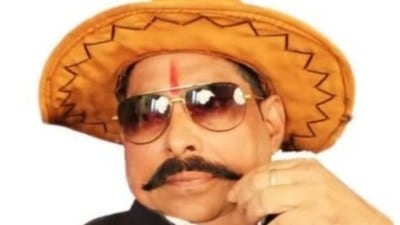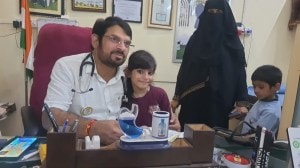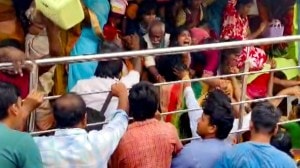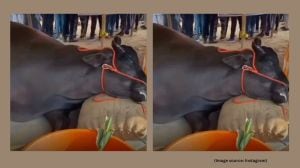Valley of Flowers
THE eyes have it. The anguish contained behind clear glasses causes Gulzar to stand apart, metaphorically, at a crowded party. The memory of...

THE eyes have it. The anguish contained behind clear glasses causes Gulzar to stand apart, metaphorically, at a crowded party. The memory of a fleeting encounter is thrown into sharp relief a year later, as I face the poet-film-maker across a breakfast table. Conversation has veered around to Kashmir, and the 69-year-old lyricist and film-maker is remembering happier times.
‘‘Raakhee and I travelled to the Valley so often with our daughter Bosky when she was a child, we used to tease her that she was conceived there. We usually put up at the Oberoi hotel. Its garden boasted of these two majestic chinars, I called them Badshah and Begum, or Jehangir and Noorjehan, depending on my mood… I saw them again recently, they looked so forlorn, unke sar jhuke huye the (their heads were bowed).’’
Suddenly, the tears spill over. By all accounts, they have been held back too long. Kashmir is a subject close to Gulzar’s heart, but his plans to transfer the emotion to celluloid—a la Maachis—seem to be jinxed.
‘‘I had even named the film, it was to be called Is Vaadi Mein. It was based on Kitaab ka Kafan, a collection of short stories by Krishna Chander, and dealt with two lovers in two parts of the Valley and how they try to overcome the military barriers,’’ says Gulzar. ‘‘I firmly believe borders are only for politicians. Cultures and peoples can easily overcome them.’’
The story and even the script were ready, but then the Kargil war happened in 1999. Gulzar had to abandon plans of taking his cast and crew to the Valley. And, of course, the film could not have been shot elsewhere.
The pain, however, stayed with the man. It found an outlet, most recently, in a short story Kashmir Se, and in poetry—Vaad-e-Kashmir, from his collection Raat Pashmine Ke:
Hari hari hai, magar ghaas ab hari bhi nahin
Jahan par goliyaan barsi, zameen bhari bhi nahin
Woh ‘migratory’ panchhi jo aaya karte the
Woh saare zakhmi hawaon se dar kar laut gaye
Badi udaas hai vaadi, yeh vaad-e-Kashmir!
‘‘I made Maachis almost eight to 10 years after the Punjab crisis,” says Gulzar, “I will make a film on Kashmir, but I can’t say when just yet. Let the situation settle down, then we can also look at the situation more objectively.’’
But surely the fact that his own roots lie elsewhere gives him a degree of objectivity? For the first time, an element of impatience creeps into the film-maker’s voice. ‘‘You can’t make compartments! I’m an Indian, and I feel for all Indians, all our cultures, be it Bulle Shah of Punjab or the legends of Bengal,’’ he snaps.
‘‘In fact, right now I am translating the works of Marathi poet Kusumagraj. Peoples and their sensitivities have to be kept in mind, narrow compartmentalisation has to be done away with.’’
The subject of the Srinagar-Muzaffarabad bus crops up. ‘‘I am happy about the bus service. Of course, politicians will draw mileage from it, but the bus will draw people closer. Kashmir should be like Europe, where you can cross borders without administrative hassles. It’s time we stopped treating it like a picnic spot.’’
Or like another shoot location. The film can wait.



- 01
- 02
- 03
- 04
- 05




























